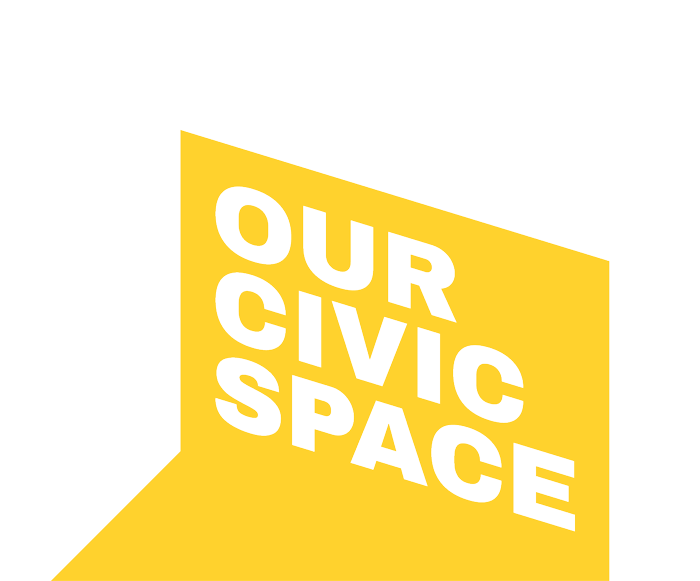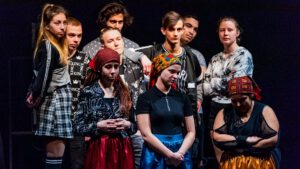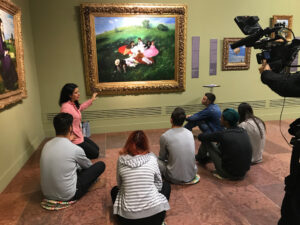The ART-RAVALÓ project: a programme of the Subjective Value Foundation and Faktor Terminál Egyesület
The ART-RAVALÓ project: a programme of the Subjective Value Foundation and Faktor Terminál Egyesület
We believe that first-hand experience-based creative artistic activities, such as literature, poetry, music, acting, and belonging to a community help us understand ourselves and the world around us. It develops the ability to express ourselves, is sensitizing, and last but not least has sustaining power.
This is why ART-RAVALÓ, the joint social-art project of Szubjektív Értékek Alapítvány and the Factor Terminál Egyesület was created for disadvantaged young adults, raised in child protection. The young people participating in the project will take part in a 9-month-long art and career orientation training registered in adult education.
The goal is to provide young clients with personality-developing artistic activities, whilst in the long run, the aim is to promote a positive future and self-image, as well as enhancing social inclusion and successful employment. Some components of the training programme are: theater art training, life-skills counseling, development of basic economic knowledge, individual occupational counseling program, experiential pedagogical workshops, personalized coaching, regular meetings with a peer group and broadening the cultural horizon (theater and museum visits and common interpretation of what is seen)
The primary short and long-term goal of the Art-Ravaló project is to develop clients’ personalities through pedagogical and psychological methods. It is necessary, as the members of the target group of the programme are characterised by a lack of suitable family background, a personality injured due to difficult circumstances, and antisocial behaviour is also common. Using the professional approach of foster homes and institutes, the programme seeks to continue the pedagogical and development work of educators working in homes with the power of art therapy and first-hand experience. Due to their circumstances, young people raised in public care do not have such an experience at all or only to a small extent. This is also a mistake as these tools could provide an effective complement to the day-to-day educational work carried out under strict rules. In this age group, banning and silencing do not prove to be effective. At the same time, living our own experiences on an emotional level develops the personality, from which we can rightly expect positive changes in the long run. Unfortunately, there are large numbers of young people living in foster homes who are involved in child prostitution, either as victims or as pimps, which is almost inevitably linked to drug use and, as a consequence, sometimes crime. Due to the personality status and antisocial behaviour of these severely injured young adults, the primary goal of the project is to improve their personalities through pedagogical and psychological methods. This serves crime prevention purposes so that young people do not become perpetrators or victims of crime.
One of the main symptoms of personality disorders in young people growing up in foster homes and other disadvantaged conditions is the undeveloped or negative system of values and norms, from which their various acts of violence can also result. Thus, the primary task of re-socialisation is to create a new, socially accepted value orientation, to dismantle their old system of dissociative-antisocial norms, and to help the emergence of a stronger self-image and a positive vision. The application of art therapy, literature, poetry, and acting is one of the most obvious tools to achieve this goal. Creative artistic activity based on personal experience, development from external control to self-regulatory functions are also excellent tools, which are suitable for supplementing and further developing the consistent educational processes established in the institutes. These processes of self-healing have a personality development force that can later help participants integrate into society. By participating in the project, young people can build new relationships with a group – artists – whose attitudes are completely different from their previous experiences. These new impressions can open up new opportunities for them in the development of a positive vision, which can also help to stop the process of criminalisation that may have already begun.
Several of our participants in the Art-Ravaló project came from Juvenile Correctional Institution or Special Children’s Home and the programme brought them many positive changes. In relation to one of our young participants who was involved in a criminal procedure, the acting judge, by changing his previous decision, thought that he would have a better place in our programme and be able to achieve greater change than in the correctional institution. He was imprisoned when he started the programme, but eventually received a suspended penalty instead. A young person from another correctional institution also completed a part of his final year of serving his sentence in the project. Another participant came from extreme poverty. Today she is the one to support her family members at home from her salary. Participants in the programme include former drug users or victims of abuse, who were all able to report progress to us by analyzing their participation in the project. Their example also shows how gap-filling this project is, offering participants an alternative to restructuring their previous lifestyle, and enter their adult lives with a renewed approach, daily routine, and motivation.
On the one hand, this programme provides all the security and framework that a Correctional Institution program can provide. On the other hand, the programme offers even more, as art-based training, alternative education, and the transfer of practical competencies can provide holistic, whole-personality training for those most in need.
One of the important goals of the programme is to support participating young adults in both their successful integration into society and their effectiveness in finding employment, as the two are inseparable.
Want to learn more about the programme and the organisations involved? Visit the following websites:
http://faktorterminal.hu/index.php
Written by OSA


